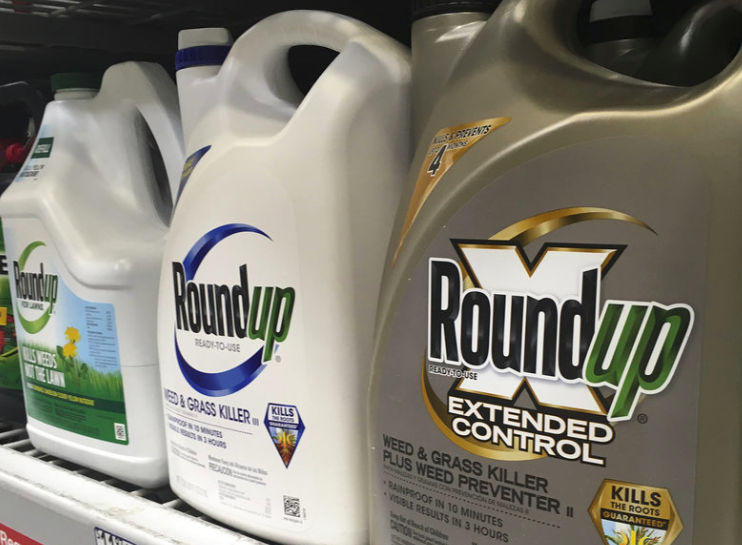
Photo: Haven Daley, AP via NPR
A jury in California awarded more than $2 billion to a couple who sued Monsanto saying that exposure to the weed-killer Roundup caused them to contract cancer, including $55 million in “compensatory” damages to make them whole for their injuries, and $2 billion in punitive damages to punish Monsanto for its reckless disregard for human health. The plaintiff’s case relied heavily on a 2015 Report by the World Health Organization that concludes that the chemical in Roundup, glyphosate, is “probably carcinogenic to humans.” Bayer said in a statement on Monday that the 2015 Report was “an outlier among international health regulators and scientific bodies.”
- The couple said they used Roundup to kill weeds on their property for more than three decades and both were diagnosed with the same type of cancer, non-Hodgkin lymphoma, four years apart.
- This is yet another huge loss for the company, after two prior verdicts against it, one for $80 million last March, and another for $289 million last August. You can read our coverage from earlier here.
- One of the reasons for this string of verdicts against Monsanto is a 2015 internal email message stating that an EPA official at the time offered to help influence the government’s review of glyphosate, saying “If I can kill this I should get a medal.” However, Monsanto denies it used any undue influence to get favorable treatment from EPA or any other agency of the government. You can read the emails here.
Things could get worse for Monsanto, as the court cases continue to go against them. There are more than 13,000 other lawsuits against Monsanto, which is a subsidiary of Bayer, and the next trial is set to begin in August this time in St. Louis, which is the site of Monsanto’s former headquarters.
Why This Matters: Jury verdicts holding corporations accountable for the harms they cause are great. They hit companies where it hurts — in their profits. But that does not stop these companies. What would be better is if the EPA did its job and banned glyphosate as studies have shown is the best thing to do to protect public health. There is evidence that EPA in its evaluation has disregarded substantial scientific evidence of the toxicity of glyphosate. Yet, just last week the agency “re-affirmed” that glyphosate is not a risk to public health, even though it is under study at EPA now. The job of the EPA is, after all, to protect public health, not giant chemical companies.
May 14, 2019 » Bayer, cancer, glyphosate, Monsanto, Roundup, toxic

